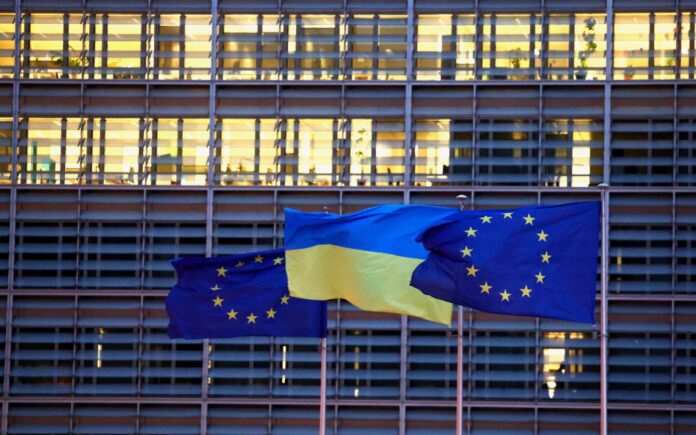Brussels: Ukraine has moved to reassure the European Union that its negotiations with the United States over a controversial minerals deal will not undermine its path toward EU membership. The talks, currently at a technical stage, have drawn concern in Brussels due to provisions that could give Washington outsized control over Ukraine’s critical mineral resources.
“It should be a partnership agreement, so on equal conditions for both sides,” Ukrainian Prime Minister Denys Shmyhal stated during his visit to Brussels on Wednesday.
A leaked draft of the deal has raised alarm in EU circles, particularly over clauses that would grant the United States a “right of first offer” and substantial control over a proposed joint investment fund overseeing Ukraine’s natural resources. According to reports by The Financial Times and Bloomberg, the fund would be managed by a five-member board—three appointed by the US and two by Ukraine—effectively giving Washington veto power over strategic infrastructure and extraction projects.
Bloomberg further reported that Ukraine would be required to submit all new projects—including those related to roads, ports, railways, oil, gas, and critical minerals—for review by the fund “as early as practicable.” If rejected, Ukraine would be barred from offering those projects to third parties under “materially better” terms.
In addition, the draft agreement would entitle the US to claim all profits generated by the fund and a 4% annual return until military and financial assistance to Ukraine is fully repaid. The Kiel Institute for the World Economy estimates that American support to Ukraine has reached approximately €114 billion since the start of Russia’s full-scale invasion.
These conditions have sparked criticism of the proposed arrangement, with some viewing it as exploitative and reminiscent of neo-colonial practices. The expansive nature of the provisions could also pose a significant obstacle to Ukraine’s compliance with EU rules on competition, market transparency, and public procurement—key requirements for membership.
In response to growing concerns, Shmyhal emphasized Ukraine’s unwavering commitment to its European aspirations.
“We really have some red lines,” he stated during a press conference following the EU-Ukraine Association Council.
“First of all, this is our Constitution. Second, these (are) our European aspirations and our European obligations, so this is another red line. (Third), international legislation.”
Shmyhal revealed that a special delegation of experts, including international legal advisors, has been tasked with conducting the technical negotiations. These talks are set to continue in the United States through the weekend and into the following week, with discussions centered on the structure of the joint investment fund.
“Then, we’ll see the result after these negotiations,” he said.
“We’re quite optimistic because we should find solutions (on) how to make this agreement a partnership agreement. I mean it literally.”
“I believe (the) technical teams will have a good cooperation,” he added.
Also Read | Senator Wyden Blocks Trump Cybersecurity Pick Over Telecom Security Report
Standing beside Shmyhal, Marta Kos, the European Commissioner for Enlargement, expressed confidence in Ukraine’s position.
“The European Commission will support any deal that will be in the interest of Ukraine,” Kos told reporters. “Today we have been talking about (the deal) and we got many confirmations that Ukraine will stay on the European path, so I don’t see the danger.”
Kos noted that Ukraine’s EU accession is increasingly seen as a geopolitical security guarantee. She added that Brussels will coordinate with Washington to ensure any agreements align with the enlargement process.
“All of this together means that for sure we will discuss everything that will be going on with the US also in the scope of the enlargement process,” she said.
Also Read | OpenAI Countersues Elon Musk, Accuses Him of Harassment and Interference
Brussels aims to open all six negotiation clusters in Ukraine’s accession roadmap by year-end—a goal Kyiv shares. However, unanimous consent from all 27 EU member states is required. Hungary remains a key obstacle, having publicly opposed Ukraine’s bid and launched a national consultation to gauge public opinion.
“We speak to the representatives of the Hungarian government and we expect that all sides involved will show good faith and willingness to reach the compromise,” Kos said, acknowledging that political factors ultimately shape the Commission’s internal processes.
“There is now a consensus among 26 member states to move ahead.”
Commenting on Hungary’s stance, Shmyhal reiterated Ukraine’s commitment to reforms, particularly regarding the protection of national minorities—an issue frequently raised by Budapest.
“We count on absolutely clear decisions from the European Union and European Union member states,” he said.



